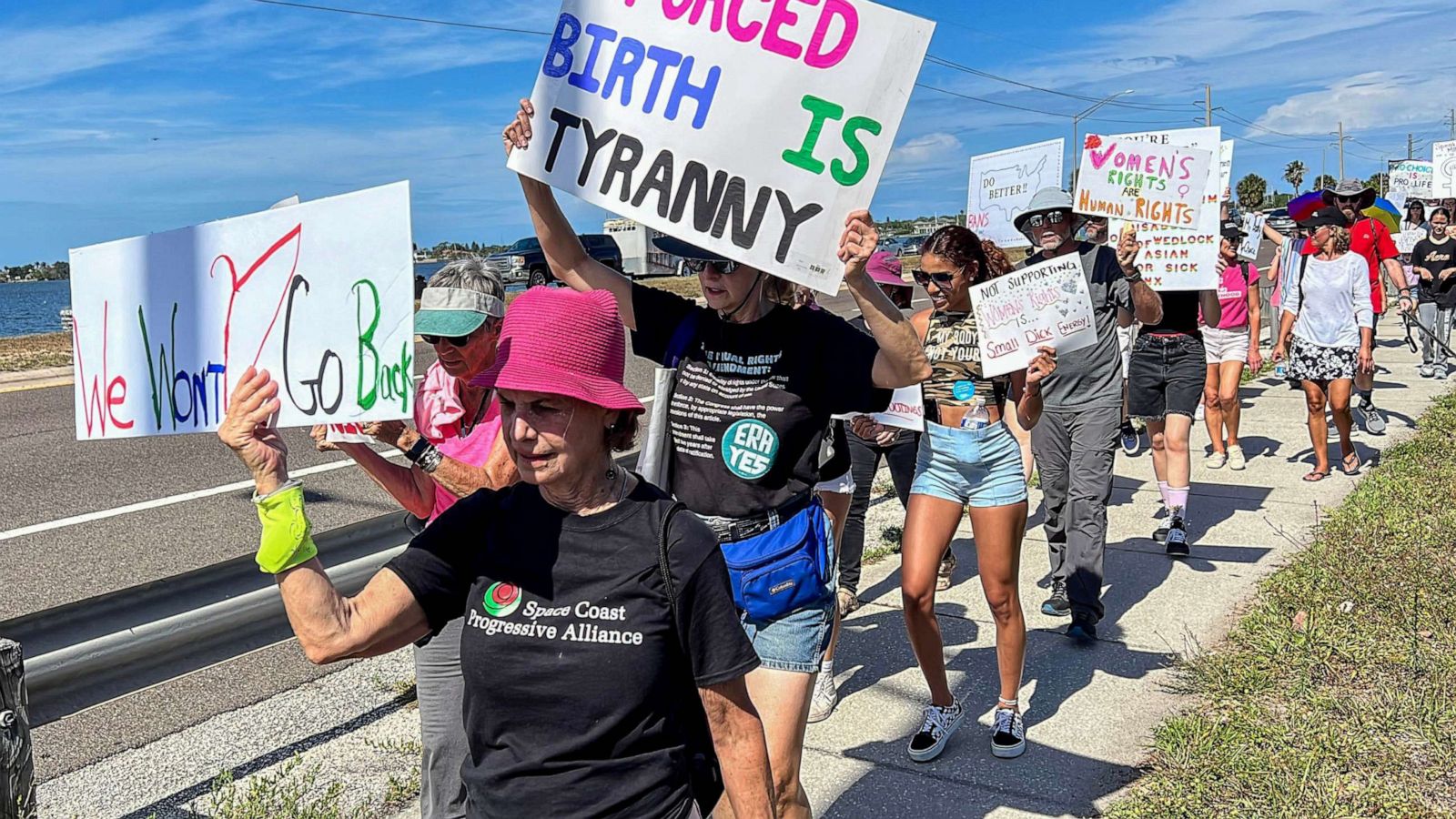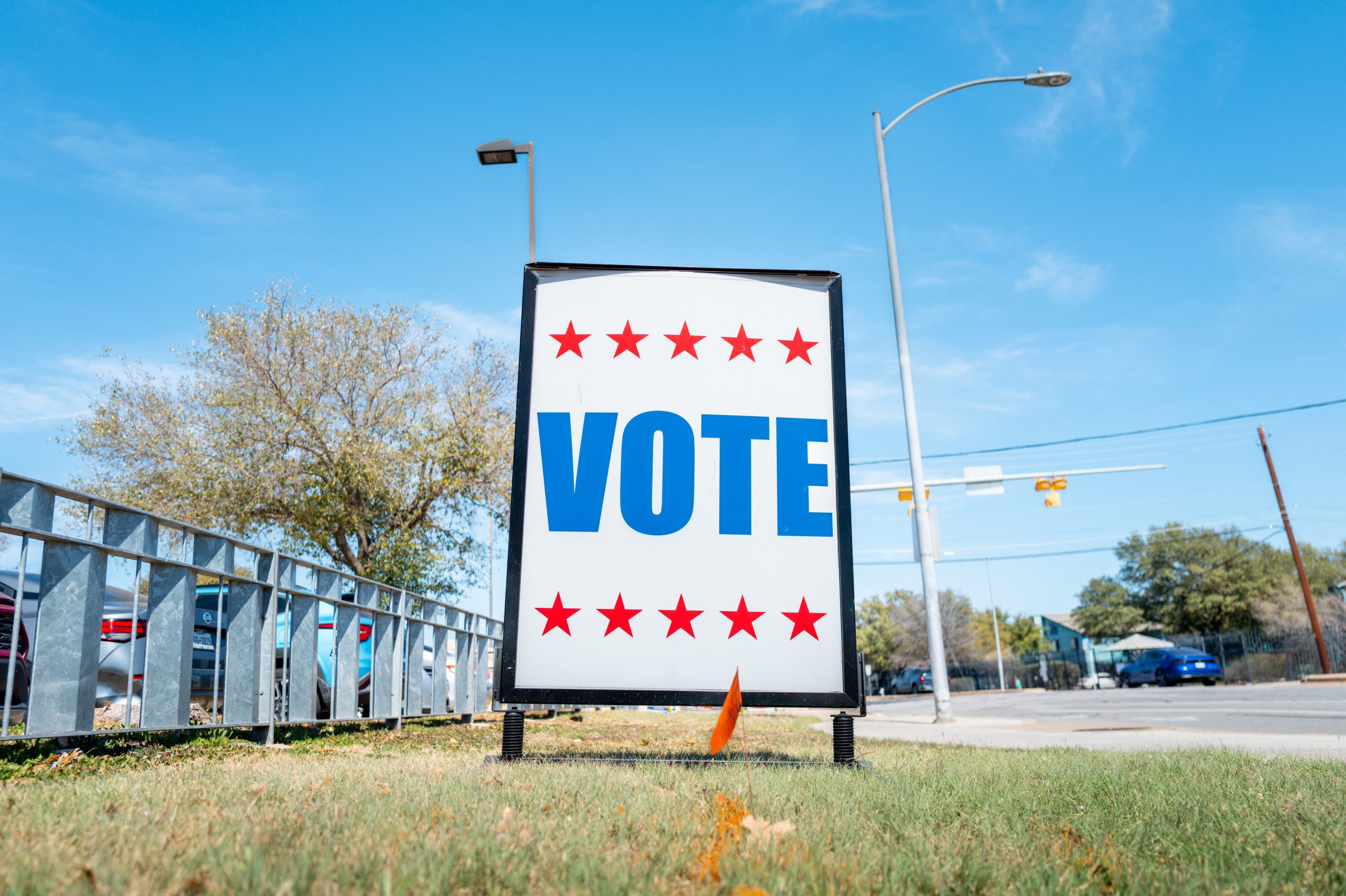
TALLAHASSEE, Fla. — Gov. Ron DeSantis late Thursday night signed Florida’s six-week abortion ban into law just hours after the GOP-led Legislature approved it.
The legislation will upend Florida’s status as an abortion haven in the south, cutting off access for thousands who would otherwise travel from neighboring states each year for the procedure.
DeSantis announced the signing on Facebook and Twitter at around 11 p.m. A photo accompanying the Facebook and Twitter posts shows the Republican governor signing the legislation surrounded by more than two dozen people.
“Signed the Heartbeat Protection Act, which expands pro-life protections and devotes resources to help young mothers and families,” DeSantis wrote on social media.
DeSantis is preparing for a likely presidential bid and has been steadfast in his support for limiting abortion.
The Florida House approved the bill, S.B. 300, on a 70-40 vote on Thursday. The state Senate approved it last week.
The six-week ban will help DeSantis show conservative voters in a primary contest that he’s solidly anti-abortion, but it also carries big risks in a general election. Republicans overall underperformed during the 2022 midterm elections, in part because Democrats andswing voters turned out in response to the high court’s abortion ruling.
Florida now joins at least 12 other states — including Georgia, Iowa, Kentucky and Louisiana — that have approved bans on abortions after six weeks, a point at which many people don’t yet know they’re pregnant. The Florida legislation provides exceptions for victims of rape, incest and human trafficking up to 15 weeks as long as they provide proof such as a police report. At least 13 other states have enacted near-total bans on the procedure.
DeSantis signed the bill almost a week after a federal judge in Texas suspended the FDA’s approval of the abortion drug mifepristone, signaling that the battle over reproductive healthcare will continue long after the Supreme Court’s decision last year to overturn the constitutional right to abortion under Roe v. Wade. Late Wednesday, a federal appeals court ruled that the pill can remain on the market but restricted its availability.
Even after DeSantis signs the bill, the new six-week ban will face an additional hurdle at the Florida Supreme Court. The state’s high court is currently weighing a challenge to last year’s 15-week ban, with plaintiffs arguing the law violates a decades-old state privacy clause that previous justices cited in upholding abortion protections. The state is enforcing the 15-week ban as the court considers the challenge.
The six-week ban, once signed into law, will not go into effect until the court rules in the case because the legislation has a trigger provision that makes it dependent on the court’s ruling.
Much like the U.S. Supreme Court, Florida’s high court is dominated by conservatives after DeSantis appointed four of the court’s seven justices. Many court watchers expect the justices to uphold the 15-week ban.
“Here in the state of Florida we care deeply about life and we care about the most vulnerable in our society – babies in the womb,” said state Rep. Jennifer Canady, a Republican from Lakeland who co-sponsored the legislation in the House.
Canady also highlighted some of the other provisions in the bill, including providing $5 million to the state Department of Health for programs that promote causes such as contraception, and $15 million for programs that support mothers who give birth.
One of the most outspoken critics of the bill was state Rep. Anna Eskamani (D-Orlando), who told lawmakers that she grew up poor and first received contraception from Planned Parenthood when she was a teenager. She said the 6-week ban would unfairly punish poor women who can’t afford to travel out of state to have an abortion after six weeks.
“I’m a firm believer that bodily autonomy should not be dictated by how much money you have or where you live,” Eskamani, who previously worked at Planned Parenthood, said. “Those with means — we’ll figure out a way, but others won’t be able to do that.”
White House Press Secretary Karine Jean-Pierre in a statement called the ban “extreme and dangerous” and said the administration “will continue to fight to protect access to abortion and defend reproductive rights.”
While House lawmakers were considering the bill, a group of abortion-rights protesters in the chamber shouted “abortion is healthcare!” before GOP Speaker Paul Renner cleared the room. Once outside the chamber, the demonstrators chanted “Hands off our bodies.”
Last year, when lawmakers voted on the 15-week ban, Capitol Police arrested a Planned Parenthood organizer on a charge of disorderly conduct and issued warnings to 25 others who were protesting. This year’s crowd appeared smaller and there were no arrests.
A handful of Florida Republicans who represent primarily Democratic areas voted against the ban but were outliers and like state Democrats, had no power to stop the GOP supermajority from approving the legislation.
House Democratic Leader Fentrice Driskell of Tampa warned that Florida’s maternal death rate would increase if the 6-week ban becomes law and added that Republicans pushed through legislation even though voters don’t want it.
“It’s an imposition of the will of the minority on the majority,” Driskell said. “Do we not listen to our constituents and the people of Florida for what they’re asking for?”




